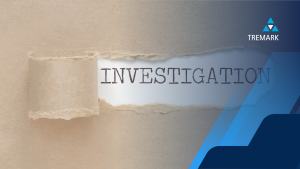How Much Does a Private Investigator Cost?
How Much Does a Private Investigator Cost?
For many businesses and law firms, one key question is: how much does a private investigator cost? The answer varies widely depending on the service. Simple tracing tasks may cost peanuts in comparison to complex surveillance or forensic investigations, which can run into the high hundreds or thousands. For example, a basic UK address trace by Tremark Associates costs £75 (plus VAT), and a Level 3 detailed asset search report is £550. In this guide we explain typical price ranges, outline the legal scope of investigations, and highlight why solicitors and corporate clients find value in professional PI services.
Investigation costs depend on time spent, complexity, and urgency. All quoted Tremark prices exclude VAT. For example, people tracing (finding a missing person or debtor) is relatively inexpensive, whereas surveillance work is charged by the hour or bespoke quote. We cover the main categories below.

How Much Does a Private Investigator Cost for Tracing Services?
People tracing (locating missing persons, debtors, etc.) is a common need for law firms (e.g. to serve proceedings). Our pricing shows a standard UK trace (residential or employment) is £75. If both address and employment are checked together, the combined fee is £130. An urgent trace (results in 72 hours) costs £200. (International traces are quoted separately.) For clarity, here are sample rates from our pricing schedule:
- Standard UK residential trace – £75
- Standard UK employment trace – £75
- Combined residential and employment trace – £130
- Urgent UK trace (72h turnaround) – £200
All rates are subject to VAT. These fixed fees give solicitors a clear benchmark: basic tracing can be very cost-effective. (In practice, a trace is usually fully undertaken only if sufficient information is supplied by the client.)
How Much Does a Private Investigator Cost for Asset Search Reports?
Asset search reports identify a person’s assets (bank accounts, property, vehicles, businesses) often for enforcement or litigation planning. Tremark offers tiered reports: Level 1 (Foundation) up to Level 4 (full credit data). The published prices are:
- Level 1: Foundation Asset Report – £125
- Level 2: Pre-Sue Asset Report – £225
- Level 3: Detailed Asset Report – £550
- Level 4: Personal Credit Data Asset Report – £1,500
These reports use public and proprietary data (land records, credit registries, company filings, etc.) to map known assets. A Level 3 report, for instance, would typically include detailed searches of Land Registry, Companies House, vehicle databases and possibly some credit checks. Again, VAT is extra. Level 4 involves more advanced financial data, hence the premium price. Such asset checks help lawyers assess whether a debtor has sufficient recoverable assets or if litigation is viable.
To instruct an asset search report, simply fill out the form below and a member of our team will be in touch.
How Much Does a Private Investigator Cost for Enquiries & Reports?
Aside from tracing and asset reports, investigators handle bespoke enquiries. Tremark’s schedule lists fixed fees for many routine tasks:
- Property visit – £175 (e.g. confirm occupancy/status)
- Drive-by property valuation – £175 (neighbourhood check)
- Pre-repossession report – £195 (situation at a property)
- Spanish property trace – £300
For truly customised work, bespoke investigations (which can include litigation support, fraud investigations, etc.) are charged at £80 per hour (minimum 2 hours, plus 70p per mile travel). All prices here exclude VAT.
(Example: if a solicitor needs covert background enquiries or a discrete interview, these would fall under “bespoke” at ~£80/hr.) Services like overt/covert surveillance or complex inquiries are quoted on a case-by-case basis.

What Private Investigators Can and Cannot Do Legally
Private investigators in the UK must operate within strict legal boundaries. It’s important for corporate clients to know the limits:
- Access public records: PIs can obtain information from public registers and databases (court judgments, Land Registry, Companies House, electoral roll, etc.) to perform background checks.
- Background checks: They may lawfully research criminal records, credit history, education and employment history, and social media profiles to build a subject’s profile.
- Public surveillance: They may conduct surveillance in public places only – following or observing a person in parks, streets, restaurants, etc., to gather evidence. (Any surveillance must respect privacy laws and be non-intrusive.)
- GPS tracking (with consent): Investigators can legally track a vehicle’s location using GPS if they have the owner’s permission.
Importantly, there are clear restrictions:
- No arrest powers: PIs cannot detain or arrest anyone – only police can do that.
- No hacking or wiretapping: Intercepting communications (phone tapping, email hacking) is illegal. Investigators must gather info by legal means (open records, observations).
- No trespass: They cannot enter private property without permission. All surveillance must be from public spaces.
- No impersonation: PIs must not pretend to be police or government officials. They should operate transparently (e.g. identify themselves if challenged).
Understanding these do’s and don’ts ensures any evidence we collect is admissible and that your firm stays on the right side of the law. Tremark emphasises compliance – we hold certifications (e.g. ISO9001, BS102000) and are a corporate member of the Association of British Investigators, meaning they adhere to a strict professional code (endorsed by the Law Society).
Surveillance vs Desktop Investigations
The cost of private investigators can be broadly divided into desktop investigations and surveillance (fieldwork):
- Desktop investigations involve research from the office. This means using open‐source intelligence: searching public databases, social media, news archives, and making telephone or email enquiries. This approach is fast and cost-effective, providing a profile of the subject before any physical action.
- Surveillance (field investigations): This means physically following or monitoring a subject to gather real-time evidence (photos, videos, witness statements). It is inherently more labour-intensive. Investigators will stake out locations for hours or days to document behaviour. The legal rule is that all surveillance must be from public property.
In practice, firms often combine both: they research a case in the office first, then deploy surveillance agents if needed. Desktop work might reveal a target’s routines or potential meeting places, making any subsequent watch more efficient. For corporate cases, if only a few documents or a simple check is needed, a desktop enquiry can save significant cost of private investigators versus full field surveillance.

Role in Litigation Support and Due Diligence
Corporate and legal clients often engage PIs for due diligence and evidence gathering. Private investigators can find witnesses, verify facts, check asset ownership, and uncover hidden connections. All findings are compiled into detailed, court-ready reports. We can also provide sworn witness statements or send an investigator to court to testify if needed.
Outsourcing investigations offers key benefits to law practices:
- Cost-effectiveness of Private Investigator Costs: Law firms can focus on legal strategy while investigators handle the data gathering. This avoids the expense of full-time in-house investigators.
- Flexibility: Firms gain access to specialist skills (surveillance, cyber-forensics, international tracing) only when needed.
- Efficiency: Investigators with global networks and experience obtain information faster.
- Credibility: Investigation reports from an accredited firm meet legal standards. Tremark, for example, presents evidence in a format appropriate for court and can have its investigators testify on findings.
For solicitors conducting due diligence on a business deal or asset recovery, such thorough, professional investigations can make the difference in winning a case or enforcing a judgment.
How Much Does a Private Investigator Cost: Summary and Contact
In summary, how much does a private investigator cost depends on the task. Simple work like a UK trace may be only £75, while complex services (e.g. multi-jurisdiction surveillance or high-level asset tracing) incur higher fees. Remember that all prices are ex-VAT and expedited work usually costs more.
For a precise estimate tailored to your case, contact Tremark’s team. Call 0113 263 6466 or email info@tremark.co.uk to speak with an expert investigator, alternatively, fill out the form below and a member of our team will be in touch.
Frequently Asked Questions (FAQ)
1. How much does a private investigator cost?
Costs vary depending on the type and complexity of the service. Simple tracing tasks start at £75, while more complex services like surveillance or forensic work are charged by the hour or quoted individually.
2. What are the typical costs for tracing services?
Standard UK residential or employment trace: £75
Combined residential & employment trace: £130
Urgent UK trace (72h turnaround): £200
All prices exclude VAT.
3. What do asset search reports cost?
Tremark offers four levels of asset reports:
Level 1: Foundation Report – £125
Level 2: Pre-Sue Report – £225
Level 3: Detailed Report – £550
Level 4: Personal Credit Data Report – £1,500
These reports help identify bank accounts, properties, vehicles, and business interests.
Categories
- Uncategorised
Popular Blogs








